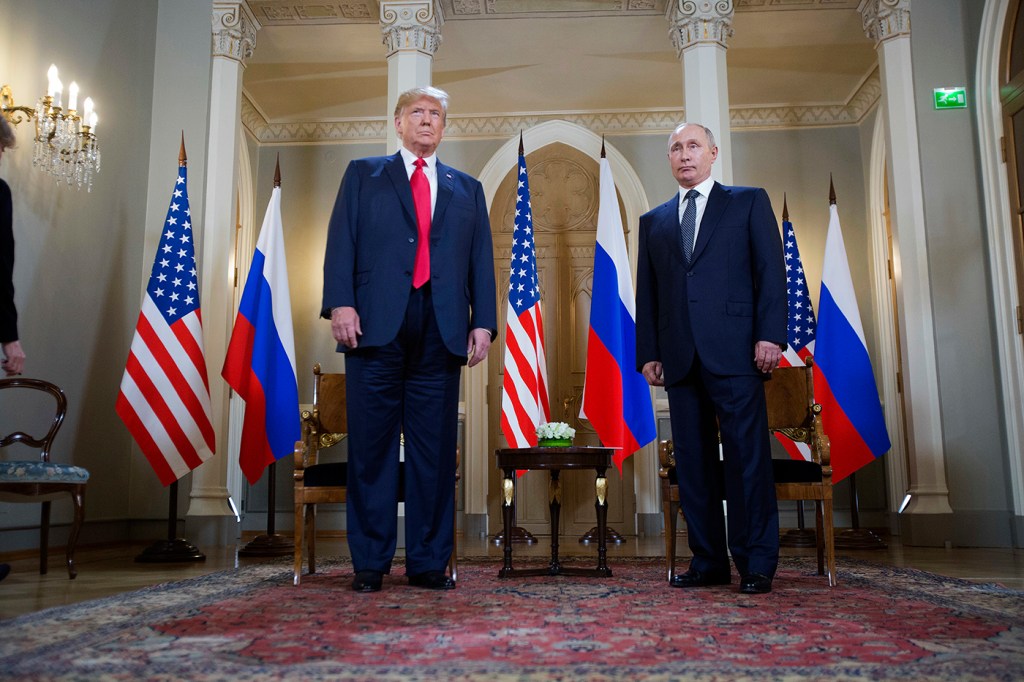Here’s what they’re saying in Russia about an American’s arrest on spying charges

An American citizen was arrested in Russia over the holidays, on claims that he was in Moscow on a spy mission that his family and U.S. officials say are untrue. In Russia, the story goes: An American spy was apprehended just after obtaining sensitive information about high-ranking Russian officials. Paul Whelan, the American apprehended, was formally charged with espionage on Thursday.
How can two such drastically different stories come from Paul Whelan’s arrest? Easy, said David Filipov, former Moscow bureau chief for The Washington Post: Neither American citizens nor Russian citizens trust each other to tell the truth.
According to Whelan’s family, Whelan was in Moscow to help a friend’s wedding party find its way in the city, as he’d traveled to Russia before and was familiar with the country. Whelan, 48 and a former marine, was detained by Russian officials on Dec. 28. Russia’s domestic security services said he was apprehended while on a spy mission.
U.S. Ambassador Jon Huntsman visited Whelan on Wednesday, and U.S. Secretary of State Mike Pompeo said the U.S. needs to know more about why Whelan was detained. If convicted in Russia, Whelan could serve between 10 and 20 years in prison there.
Filipov, who is currently the executive editor of News@Northeastern, discussed the developing situation on Facebook Live on Thursday. Here are some of the highlights.
How is this story being told in Russia?
The Russian version of what happened […] is a spy story made to order. According to them, he was in Russia to recruit people from secret services—people who were basically doing secret work—get their names, and reveal their identities to American spy services, and that he’d been doing this for some time.
Russian agencies have reported a connection between the company he worked for and a huge Russian conglomerate that is in the weapons industry, the chief of whom is a longtime friend of [Russian president Vladimir] Putin.
The [Russian] special services caught [Whelan] five minutes after he’d been given an SD [memory] card with a list of names of people whom he was about to reveal. So the story is being told as an open-and-shut case, a clear sign that this is a spy case, and, given the way things are in Russia with these kinds of cases, very likely for the Russian judicial system, an open-and-shut case.
So, that’s radically different from the story that Whelan was in Russia to help a wedding party. Is the Russian version of the story at all credible?

David Filipov talks with writers in the newsroom on January 3, 2018. Photo by Adam Glanzman/Northeastern University
American espionage experts immediately point to holes in the story: ‘Why would the CIA send somebody with no diplomatic cover, whose Russian is pretty rudimentary, who’s got a cover story that is a global security chief for a company that works for defense industry—a really bad cover story—and all to collect this low-level [information]?’
What’s interesting is that those kinds of criticisms of the Russian spy agency—saying that there’s no way this guy could possibly be a spy—fall on deaf ears in Russia. Completely. Nobody believes it.
What’s the perception of this by Russian citizens? Do they believe their government’s version of the story?
So, the typical response you get [as an American] from Russians is, ‘We don’t believe our government; they always lie to us. But, we don’t believe your government, either. They’re lying to you, and you’re deluded for thinking that your leaders are honest with you. We know better.’
‘If you, the United States, are saying this is a case of mistaken identity, it’s probably true that he was a spy.’ They’re also more likely to believe their government’s version of events than the American media’s.
Given Whelan’s role in all this, what might happen to him?
It comes as little coincidence to people who have been watching this story that his case and this remarkable set of espionage allegations that make a very neat case for Russia to present to the world, comes at a time when Russian national Maria Butina has pleaded guilty to charges put forth by the Mueller investigation of […] being an agent of the Kremlin.
Putin had said that he wasn’t planning to retaliate but that he didn’t know where these charges came from. The [Russian] foreign ministry has called her, pretty much, a political prisoner.
So now, Russia has their own. We’re saying Whelan couldn’t possibly be a spy, his family says he’s innocent, his lawyer has denied the charges, so now you have exactly the same thing [in Whelan as in Butina].
And because Whelan isn’t a diplomat, just like Butina, he’s not covered by diplomatic immunity. So, the theory is that Russia has created the conditions for a tit-for-tat swap.





